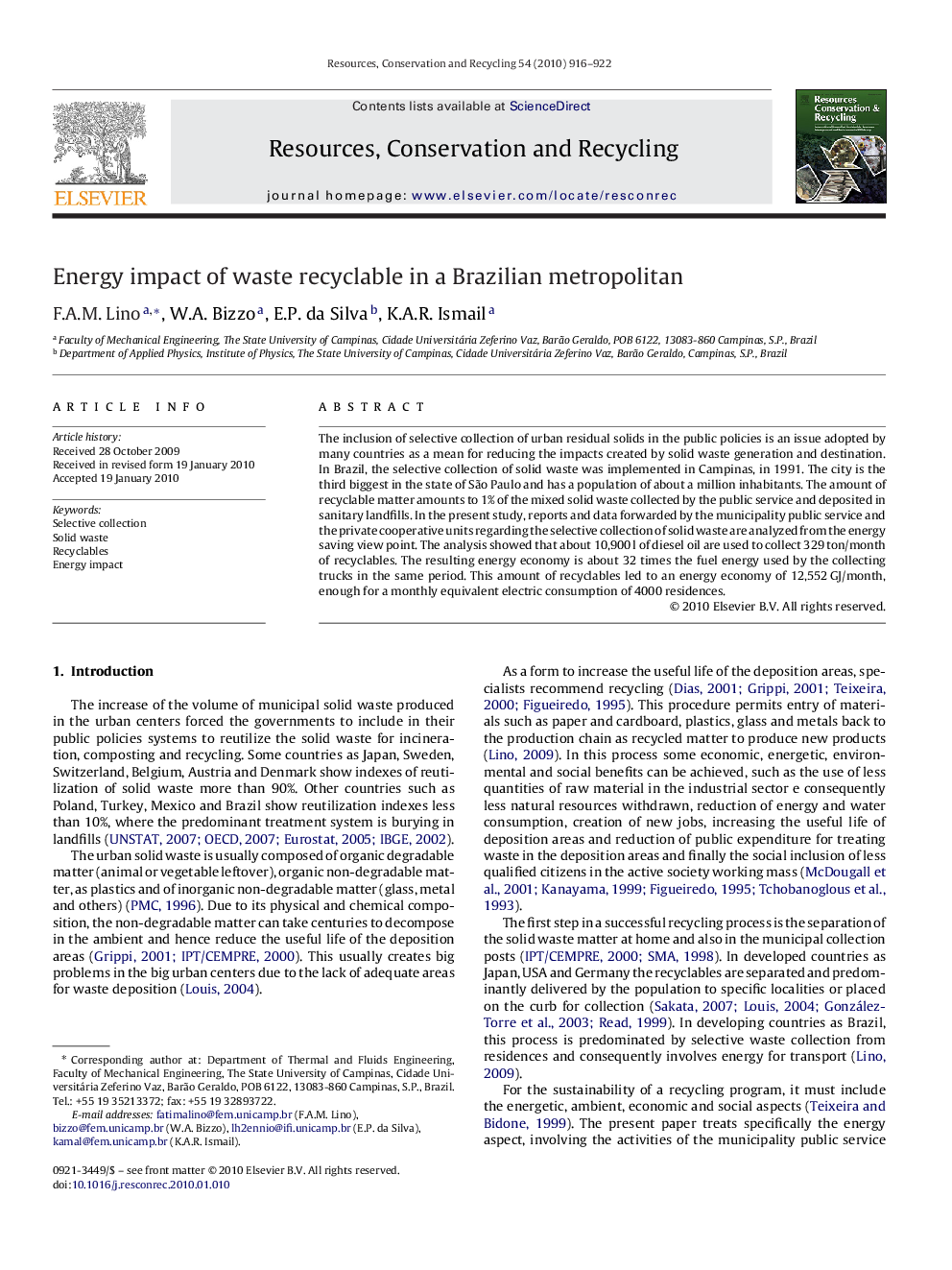| Article ID | Journal | Published Year | Pages | File Type |
|---|---|---|---|---|
| 1063941 | Resources, Conservation and Recycling | 2010 | 7 Pages |
The inclusion of selective collection of urban residual solids in the public policies is an issue adopted by many countries as a mean for reducing the impacts created by solid waste generation and destination. In Brazil, the selective collection of solid waste was implemented in Campinas, in 1991. The city is the third biggest in the state of São Paulo and has a population of about a million inhabitants. The amount of recyclable matter amounts to 1% of the mixed solid waste collected by the public service and deposited in sanitary landfills. In the present study, reports and data forwarded by the municipality public service and the private cooperative units regarding the selective collection of solid waste are analyzed from the energy saving view point. The analysis showed that about 10,900 l of diesel oil are used to collect 329 ton/month of recyclables. The resulting energy economy is about 32 times the fuel energy used by the collecting trucks in the same period. This amount of recyclables led to an energy economy of 12,552 GJ/month, enough for a monthly equivalent electric consumption of 4000 residences.
